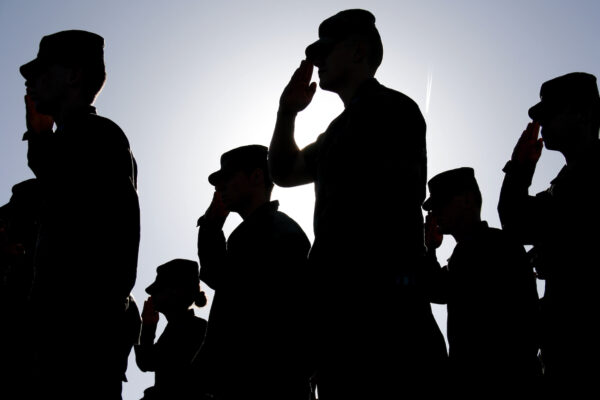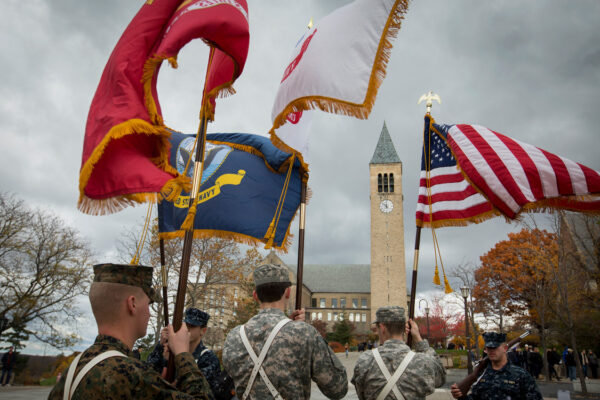By Ryan Pavel and Amy Bernard
The flexibility that colleges and universities introduced during the pandemic provided an unexpected benefit for student veterans, and those improvements shouldn’t be thrown out if and when the world can go back to normal.
Student veterans in general have an even greater need for flexibility than traditional students do. Veterans are more likely to be dealing with physical or mental disabilities that can be accommodated through the use of the technologies institutions adopted over the past 18 months. Student veterans are also demographically different: they are older, more likely to have dependents, and more likely to be first-generation college students.
So, it would be a mistake for student veterans for colleges and universities to roll back the positive institutional changes they have made over the past year and a half. We now have a deep bench of research, best practices, and examples of successful nontraditional instruction to counter those who – before the pandemic – said that virtual classes simply could not work. While many student veterans desire and thrive in the traditional, in-person model, others need the nontraditional environments institutions have recently embraced in order to maximize their education.
Institutions of higher learning need to set up and consistently improve technology-driven virtual and hybrid coursework to best support student veterans during and after the pandemic, according to experts from an interdisciplinary higher education task force convened by the George W. Bush Presidential Center’s Military Service Initiative.
The group recommended that institutions provide flexible coursework and pathways to degree completion; develop and offer virtual/hybrid coursework that is of high quality, equitable, and accessible; and continue to fund veteran support programs. Drafted to address the early- and mid-pandemic periods, the recommendations apply equally today and in the post-pandemic period.
Now is an excellent time to assess what works best when it comes to flexible learning models and to figure out how to incorporate these strategies into future coursework. The spread of the delta variant underscores the need to do this work now.
Core lessons learned so far include the importance of increased communication and interactive instructional activities, the use of novel methods like breakout rooms to stimulate discussion, and flexibility between synchronous and asynchronous class sessions. And as two professors discussed in an article published early on in the pandemic, extensive research on best practices for virtual engagement existed before the onset of COVID-19, including knowing and understanding the students, articulating learning objectives, selecting appropriate tools, setting clear expectations, and communicating promptly and regularly.
Failure to implement these lessons would come at a high cost, as the pandemic has already derailed or set back many student veterans’ academic journeys.
For example, social media mentions of academic deferment by student veterans exploded in the wake of COVID-19, according to a GI Bill sentiment analysis conducted by the Department of Veterans Affairs in collaboration with Accenture. Also, most respondents to pulse point surveys conducted throughout the pandemic by the Student Veterans of America1 indicated that progress toward earning degrees or certificates would be delayed due to COVID-19.
The pandemic is also affecting student veterans’ mental health. Operation College Promise, a national policy, research, and education program, surveyed 235 student veterans throughout 2020 about the pandemic’s effects. Of those surveyed, 52 percent reported mental health problems, as well as increased challenges surrounding finances and employment and decreased communication with their college or university staff. Flexible coursework and pathways to degree completion can help mitigate mental health challenges by removing pressure to complete coursework on traditional timelines.
The pandemic has already had an enormous impact on these students. Institutions of higher learning have an opportunity to use what’s left of the pandemic to lay the groundwork to help the student veteran community excel. The best way to do this is to deliberately incorporate innovative coursework already developed by their tenacious faculty and staff. Continuing to offer flexible learning models would help student veterans to minimize academic disruptions, earn their degrees and, ultimately, reenter the workforce.
If they can do that, the new normal will be even better than the old one for our student veterans.
[1] Student Veterans of America. (2020). SVA COVID-19 April/June surveys. [Unpublished report].
If you have any questions or comments about this blog post, please contact us.


